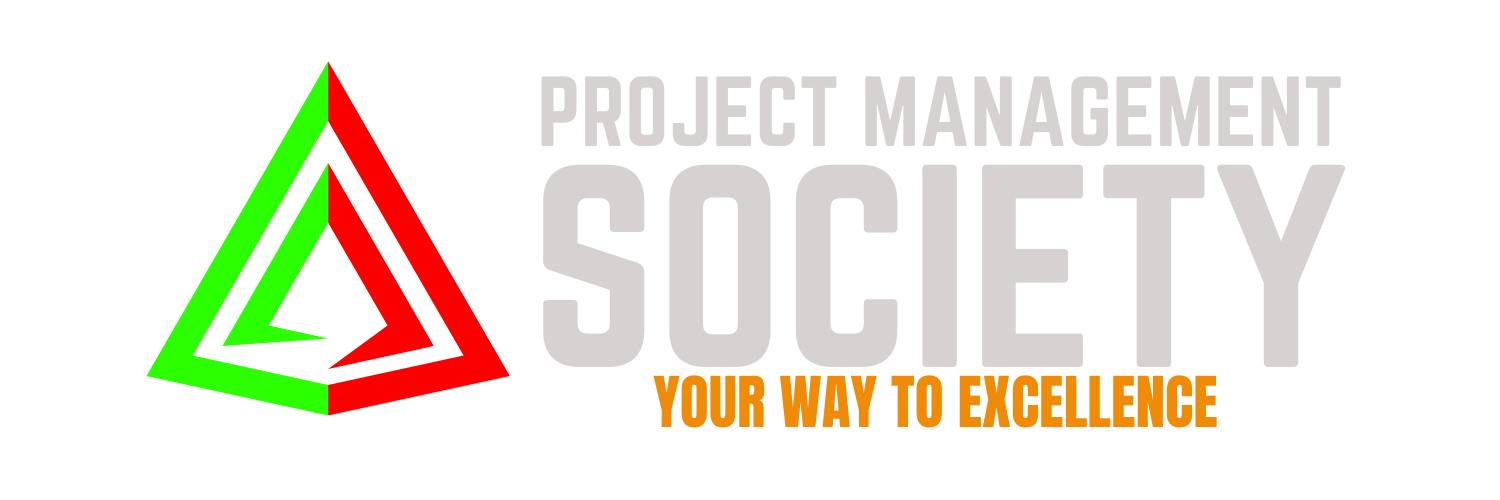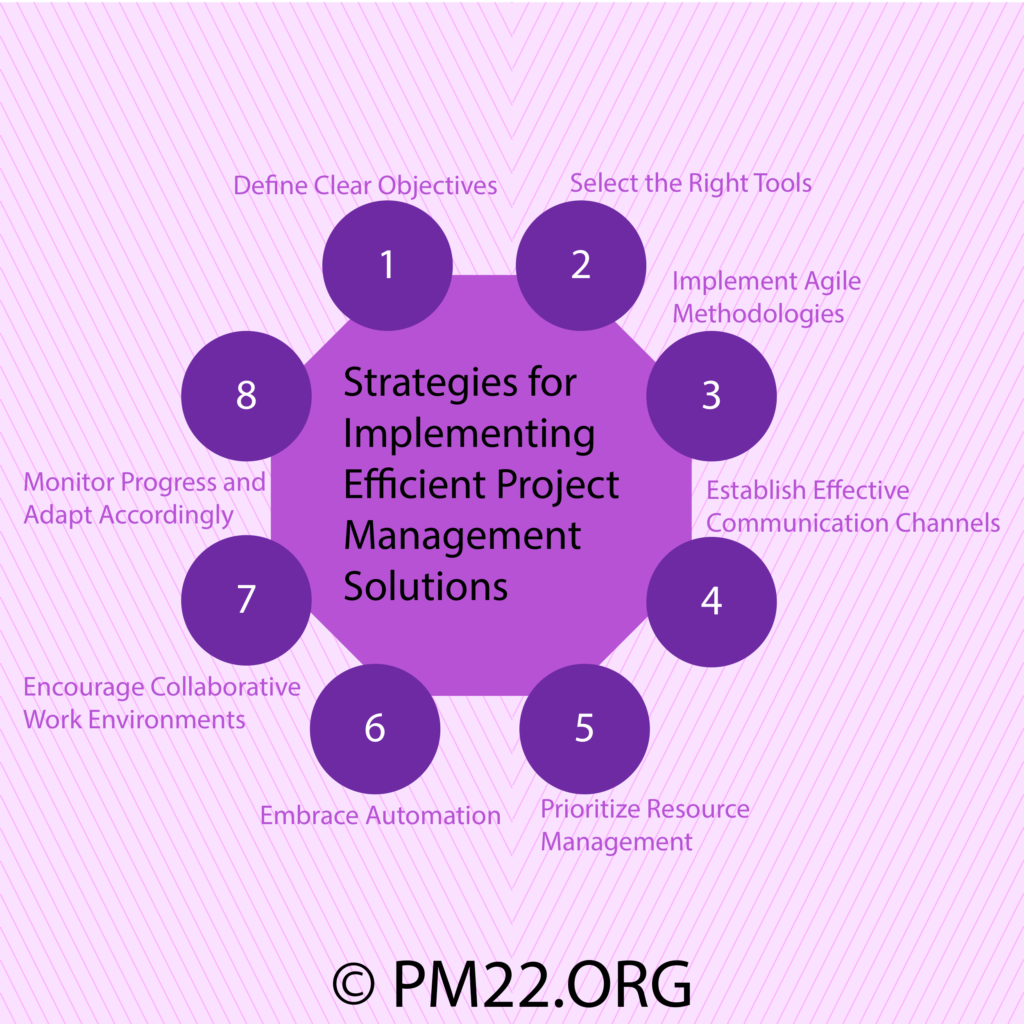 In today’s fast-paced business landscape, efficient project management solutions have become paramount for organizations striving to stay competitive and deliver results. Whether it’s implementing new software, streamlining processes, or fostering team collaboration, effective project management is key to meeting deadlines, managing resources efficiently, and achieving project goals. However, the path to success is often paved with challenges that require strategic approaches. In this article, we explore strategies for implementing efficient project management solutions that drive productivity and success.
In today’s fast-paced business landscape, efficient project management solutions have become paramount for organizations striving to stay competitive and deliver results. Whether it’s implementing new software, streamlining processes, or fostering team collaboration, effective project management is key to meeting deadlines, managing resources efficiently, and achieving project goals. However, the path to success is often paved with challenges that require strategic approaches. In this article, we explore strategies for implementing efficient project management solutions that drive productivity and success.
- Define Clear Objectives: It’s crucial to define clear objectives and goals before diving into project management initiatives. This involves understanding the project scope, identifying key deliverables, and outlining expectations. Clear objectives provide a roadmap for project teams, guiding them toward successful outcomes and helping to prioritize tasks effectively.
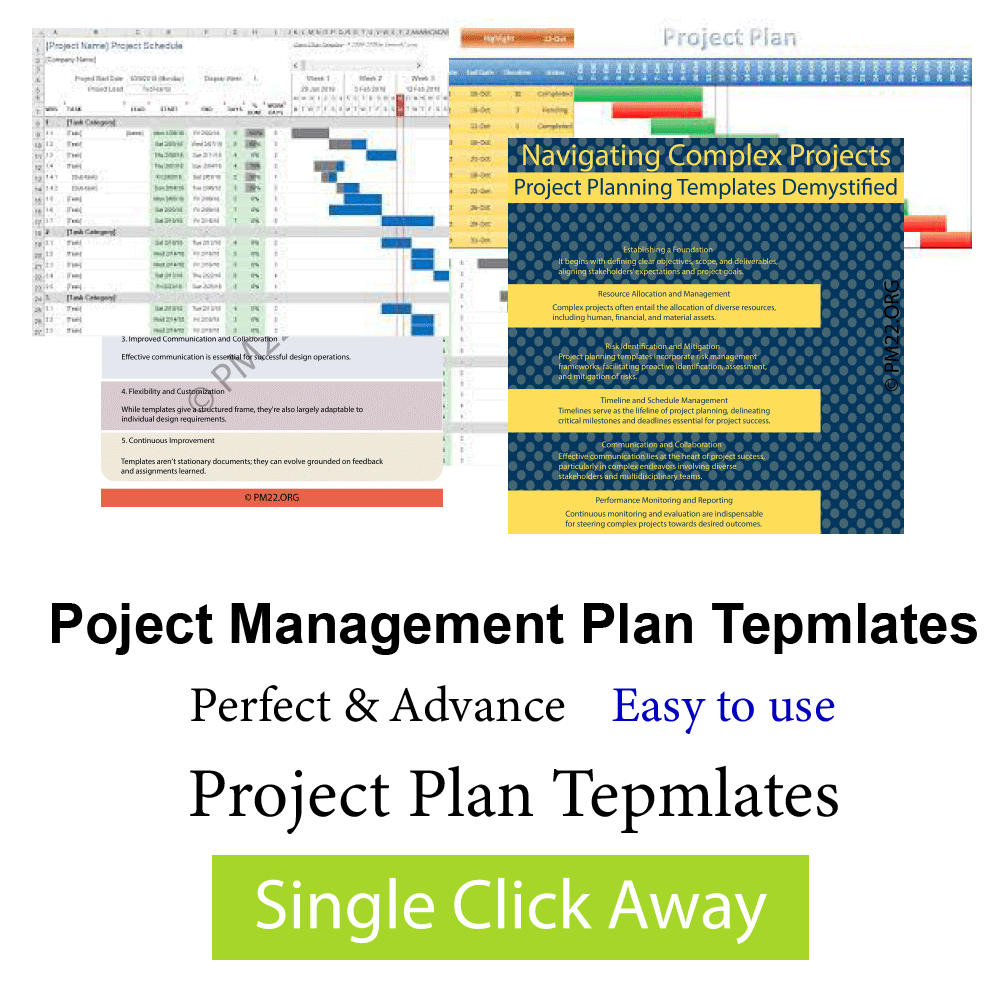
- Select the Right Tools: The market is flooded with project management tools offering unique features and capabilities. It’s essential to evaluate your organization’s specific needs and select tools that align with your project requirements. Whether it’s traditional project management software like Microsoft Project or modern collaborative platforms like Asana or Trello, choosing the right tools can significantly enhance productivity and streamline workflows.
- Implement Agile Methodologies: Agile methodologies have gained widespread popularity for their flexibility and adaptability in managing projects. By breaking down projects into smaller, manageable tasks and embracing iterative development cycles, teams can respond quickly to changes and deliver value incrementally. Implementing Agile methodologies promotes collaboration, enhances communication, and fosters a culture of continuous improvement.
CLICK HERE TO DOWNLOAD 300+ PROJECT MANAGEMENT TEMPLATES & DOCUMENTS IN EXCEL
- Establish Effective Communication Channels: Communication lies at the heart of successful project management. Establishing clear and efficient communication channels ensures that team members stay informed, aligned, and engaged throughout the project lifecycle. Whether it’s regular team meetings, status updates, or utilizing collaboration tools like Slack or Microsoft Teams, effective communication minimizes misunderstandings, resolves issues promptly, and keeps projects on track.
- Prioritize Resource Management: Efficient resource management is essential for optimizing project performance and avoiding resource bottlenecks. This involves identifying available resources, allocating them effectively, and monitoring utilization levels to prevent overallocation or underutilization. Leveraging resource management tools and techniques enables organizations to make informed decisions, balance workloads, and maximize resource efficiency.
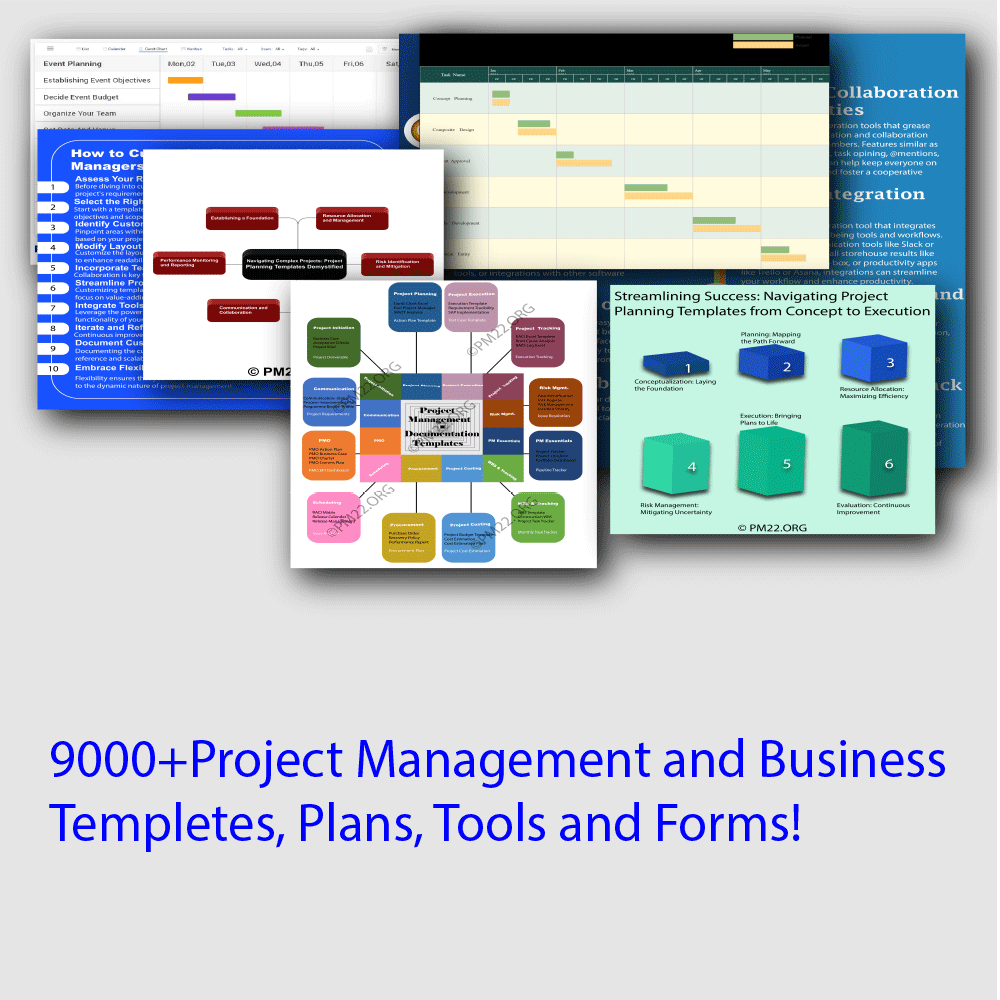
- Embrace Automation: Automation plays a pivotal role in streamlining repetitive tasks, reducing manual effort, and improving overall efficiency. From task automation using scripts and macros to implementing workflow automation through tools like Zapier or IFTTT, embracing automation frees up valuable time for project teams to focus on high-impact activities. By automating routine processes, organizations can accelerate project timelines and boost productivity.
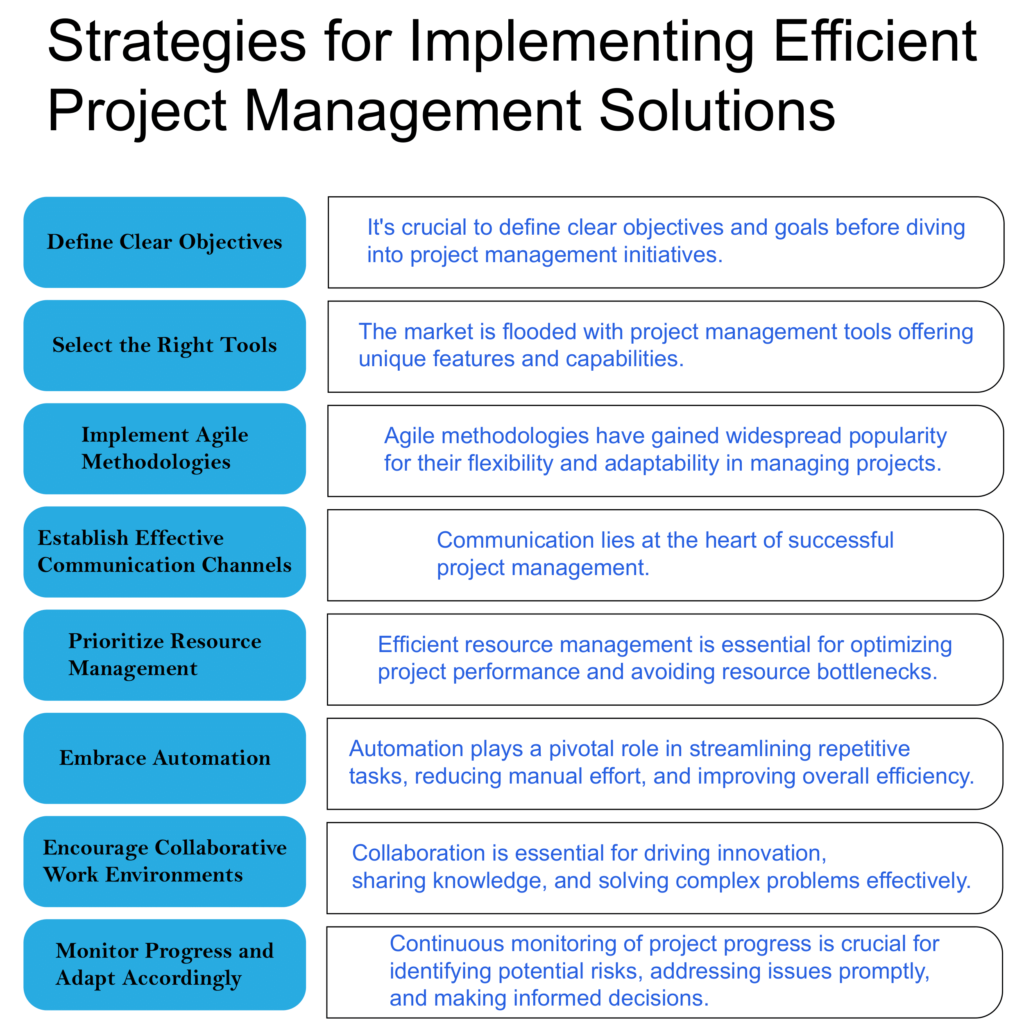
- Encourage Collaborative Work Environments: Collaboration is essential for driving innovation, sharing knowledge, and solving complex problems effectively. Creating a collaborative work environment where team members can openly communicate, brainstorm ideas, and leverage each other’s expertise fosters a sense of ownership and collective responsibility. Leveraging collaboration platforms, conducting regular team-building activities, and promoting cross-functional collaboration enhance teamwork and drive project success.
CLICK HERE TO DOWNLOAD 300+ PROJECT MANAGEMENT TEMPLATES & DOCUMENTS IN EXCEL
- Monitor Progress and Adapt Accordingly: Continuous monitoring of project progress is crucial for identifying potential risks, addressing issues promptly, and making informed decisions. Implementing robust monitoring and reporting mechanisms allows project managers to track key metrics, analyze performance trends, and adapt strategies accordingly. Regular performance reviews, milestone checkpoints, and retrospective meetings enable teams to course correct as needed and ensure project objectives are met successfully.
In conclusion, implementing efficient project management solutions requires a strategic approach that encompasses clear goal-setting, effective communication, agile methodologies, resource optimization, automation, collaboration, and continuous monitoring. By embracing these strategies, organizations can streamline workflows, enhance productivity, and achieve successful project outcomes in today’s dynamic business environment.
